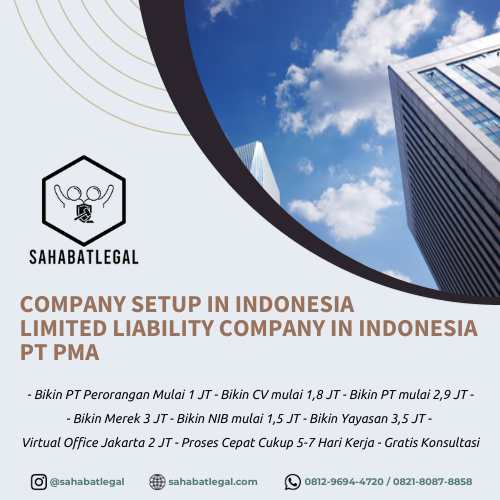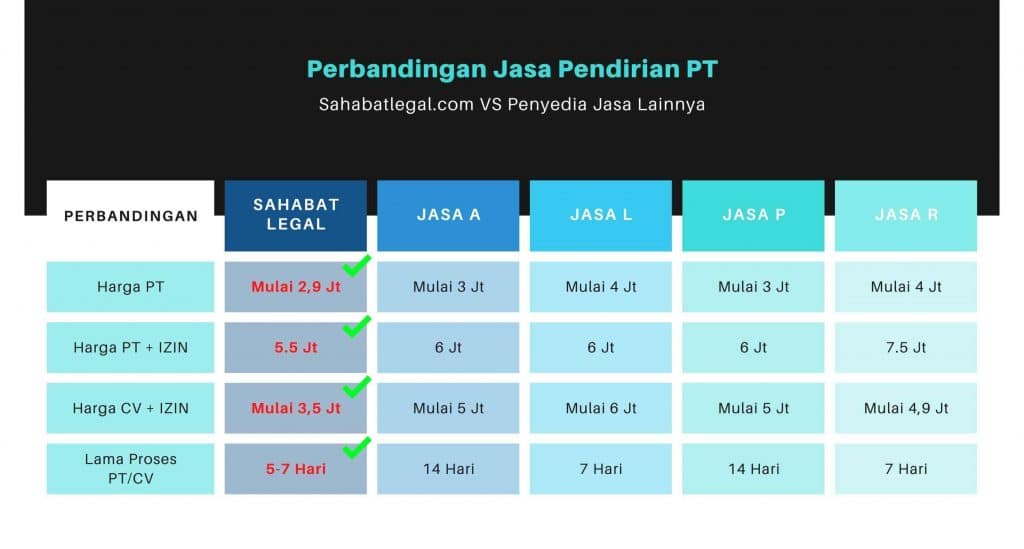I. Introduction
Indonesia, a diverse archipelago in Southeast Asia, has emerged as a vibrant hub for business and investment opportunities. Understanding the Indonesian business landscape is crucial for entrepreneurs and investors looking to tap into this dynamic market. Moreover, recognizing the importance of proper company setup in Indonesia is the foundation for a successful venture in this growing economy.
A. Understanding the Indonesian Business Landscape
Indonesia boasts a unique blend of cultures, languages, and markets across its 17,000 islands, making it one of the most diverse business environments in the world. With a population exceeding 270 million, it represents a colossal consumer base. Additionally, its strategic location in the Asia-Pacific region provides a gateway to both regional and global markets.
Indonesia’s economy has been steadily expanding, driven by sectors such as manufacturing, agriculture, technology, and tourism. As a member of the G20 and ASEAN, Indonesia offers trade and investment incentives, further enhancing its attractiveness to foreign investors.
B. Importance of Proper Company Setup in Indonesia
Setting up a company in Indonesia is not merely a bureaucratic formality; it’s a critical step in ensuring the long-term success and sustainability of your business. Proper company setup involves complying with legal requirements, understanding the local market, and adopting a suitable business structure.
Navigating the intricacies of Indonesian business regulations and practices can be daunting, but it is an essential aspect of safeguarding your investment and ensuring smooth operations. Inadequate preparation and non-compliance with local laws can lead to legal complications and financial setbacks.
II. Preparing for Company Setup in Indonesia
Before embarking on the journey of company setup in Indonesia, thorough preparation is key. This section will explore the essential steps you should take to ensure a seamless and successful entry into the Indonesian market.
A. Market Research and Business Planning
Market research is the cornerstone of a well-informed business strategy. Conducting comprehensive research helps you identify potential competitors, consumer preferences, and emerging trends within the Indonesian market. With this data, you can tailor your business plan to meet local demands and capitalize on opportunities.
Business planning involves setting clear objectives, defining your value proposition, and crafting a robust business model. A well-thought-out business plan will guide your company setup and operational decisions as you move forward.
B. Legal and Regulatory Requirements Overview
Indonesia’s regulatory landscape can be complex, and compliance is paramount. This section will provide an overview of the legal and regulatory requirements you’ll encounter during the company setup process. It will cover aspects such as company registration, permits, licenses, and tax obligations.
C. Choosing the Right Business Structure for Company Setup in Indonesia
Selecting the appropriate business structure is a pivotal decision that impacts taxation, liability, and operational flexibility. This section will discuss the various business structures available in Indonesia, such as limited liability companies (PT), representative offices, and partnerships. Understanding the pros and cons of each will help you make an informed choice that aligns with your business goals.
III. Step 1: Name and Business Activities
Before diving into the legal intricacies of company setup in Indonesia, you need to lay the foundation for your business. This involves selecting a unique business name and defining your business activities and objectives.
A. Selecting a Unique Business Name
1. Name Availability Check: Begin by conducting a name availability check with the Indonesian government. Your chosen name should not already be in use or too similar to existing businesses to avoid legal complications.
2. Consider Local Culture: Keep in mind that Indonesia is a diverse nation with various languages and cultures. Ensure that your business name is culturally sensitive and does not have negative connotations in any local dialect.
3. Trademark Protection: If you have a unique brand or intend to build one, consider trademarking your business name to protect it from unauthorized use.
B. Defining Business Activities and Objectives
1. Narrow Down Your Focus: Clearly define your business activities and objectives. Are you offering products or services? What is your niche? Who is your target audience? Having a precise understanding of your business scope is crucial for future planning.
2. Set Achievable Goals: Establish short-term and long-term business objectives. These goals will guide your company’s growth and development. They can range from revenue targets to market expansion plans.
3. Legal Compliance: Ensure that your chosen business activities align with Indonesian regulations and do not fall under any restricted or prohibited categories.
IV. Step 2: Legal Requirements and Documentation
With your business name and activities defined, it’s time to delve into the legal requirements and documentation necessary for company setup in Indonesia.
A. Company Registration Process
1. Choose the Right Business Structure: Based on your business activities and objectives, select the most suitable business structure. The most common choice for foreign investors is a Limited Liability Company (PT PMA).
2. Draft the Articles of Association: Prepare the company’s Articles of Association, outlining its structure, objectives, and shareholding details. This document is a crucial part of the registration process.
3. Obtain a Tax Identification Number (NPWP): Your company will need an NPWP, which is essential for tax compliance.
B. Obtaining Necessary Permits and Licenses
1. Business License: Depending on your industry and location, you may require specific business licenses. These licenses vary, so consult with local authorities and legal advisors to identify the necessary permits for your business.
2. Foreign Investment Approval: If you’re a foreign investor, obtaining investment approval from the Investment Coordinating Board (BKPM) is a critical step.
3. Environmental Permits: Some businesses may need environmental permits, especially if their activities impact the environment.
C. Compliance with Indonesian Tax Laws
1. Understanding Tax Obligations: Complying with Indonesian tax laws is crucial. Be aware of corporate income tax, value-added tax (VAT), and other tax obligations specific to your business.
2. Hire a Local Accountant: Consider hiring a local accountant or tax consultant who is well-versed in Indonesian tax regulations to ensure accurate and timely tax filings.
3. Financial Record-Keeping: Maintain meticulous financial records to support your tax filings and audits.
V. Step 3: Location and Office Setup
Selecting the right location and setting up your office space are pivotal aspects of establishing your business presence in Indonesia.
A. Choosing a Suitable Business Location
1. Strategic Considerations: Carefully assess various factors such as proximity to suppliers, customers, transportation hubs, and market demand when choosing your business location.
2. Regional Considerations: Indonesia’s vast geographical diversity means that regional nuances can significantly impact your business. Understanding the local market and culture is essential.
3. Regulatory Compliance: Ensure that your chosen location complies with zoning regulations and permits required for your type of business.
B. Setting Up the Office Space
1. Leasing or Buying: Decide whether to lease or purchase office space. Leasing provides flexibility, while buying may be a long-term investment.
2. Office Design and Infrastructure: Create a conducive workspace that aligns with your business needs. Consider office layout, IT infrastructure, and necessary amenities.
3. Furnishing and Equipment: Outfit your office with the necessary furniture and equipment. Prioritize ergonomics and functionality.
4. Safety and Security: Implement security measures to safeguard your assets and protect your employees.
VI. Step 4: Capitalization and Investment
Securing the required capital and attracting investment are crucial steps in company setup in Indonesia.
A. Capital Requirements for Company Setup in Indonesia
1. Initial Capital: Determine the minimum capital requirements based on your chosen business structure. For PT PMA companies, the capital requirement depends on your industry and location.
2. Financial Planning: Develop a comprehensive financial plan that outlines your budget, cash flow projections, and financial goals.
3. Sources of Capital: Identify potential sources of capital, which may include personal savings, loans, equity investment, or venture capital.
B. Attracting Investment and Funding Options
1. Investor Pitch: Craft a compelling business plan and investor pitch to attract potential investors. Highlight your business’s unique value proposition and growth potential.
2. Government Support: Explore government-backed investment programs and incentives that can facilitate access to funding.
3. Networking and Partnerships: Attend industry events, network with local business leaders, and seek strategic partnerships that can open doors to investment opportunities.
4. Alternative Funding: Consider alternative funding options such as crowdfunding or angel investors, which are increasingly popular in the Indonesian startup ecosystem.
Remember that each business’s capitalization and investment needs may vary, so tailor your approach to your specific circumstances and goals.
VII. Step 5: Hiring and Human Resources
As your company setup in Indonesia progresses, building the right team and understanding labor laws and regulations are critical steps.
A. Building Your Team in Indonesia
1. Recruitment Strategy: Develop a recruitment strategy that aligns with your business objectives. Consider the skills and expertise needed for your specific industry.
2. Local Talent vs. Expatriates: Decide whether to hire local talent or expatriates for key positions. Balance the need for specialized skills with compliance requirements.
3. Cultural Sensitivity: Recognize the importance of cultural diversity in your team and foster an inclusive work environment.
B. Understanding Labor Laws and Regulations
1. Employment Contracts: Ensure that employment contracts comply with Indonesian labor laws. Contracts should outline terms of employment, benefits, and termination procedures.
2. Minimum Wage and Benefits: Stay informed about minimum wage regulations and mandatory employee benefits, including healthcare and social security.
3. Work Permits: If hiring foreign nationals, understand the process for obtaining work permits and stay compliant with immigration requirements.
4. Termination and Dispute Resolution: Be aware of labor dispute resolution mechanisms and follow due process when terminating employees.
VIII. Step 6: Banking and Financial Management
Managing your company’s finances effectively is crucial for its sustainability and growth.
A. Opening a Business Bank Account
1. Choose a Local Bank: Select a reputable local bank to open a business bank account. Consider factors such as branch accessibility and banking services offered.
2. Required Documentation: Prepare the necessary documentation, including company registration certificates, tax identification numbers, and identification documents for authorized signatories.
3. Currency Considerations: Decide whether to open accounts in Indonesian Rupiah (IDR) or other major foreign currencies, depending on your business needs.
B. Managing Finances and Banking in Indonesia
1. Accounting Practices: Adopt sound accounting practices to maintain accurate financial records and ensure compliance with tax regulations.
2. Tax Planning: Develop a tax strategy that minimizes tax liabilities while staying within legal bounds. Engage with tax consultants or accountants for expert guidance.
3. Currency Exchange: Monitor foreign exchange rates if dealing with multiple currencies, as fluctuations can impact your bottom line.
4. Banking Services: Familiarize yourself with the banking services available in Indonesia, such as online banking, payroll services, and business loans.
Effective financial management is essential for the long-term success of your company in Indonesia. Seek professional advice when necessary to navigate complex financial matters.
IX. Step 7: Marketing and Market Entry
Entering the Indonesian market successfully involves creating a strong market entry strategy and effectively promoting your company.
A. Developing a Market Entry Strategy
1. Market Research: Continue your market research to understand consumer preferences, competition, and emerging trends.
2. Localization: Adapt your products, services, and marketing strategies to cater to local tastes and cultural nuances.
3. Distribution Channels: Identify and establish effective distribution channels to reach your target audience.
B. Promoting Your Company in the Indonesian Market
1. Digital Marketing: Leverage digital marketing tools and platforms to create an online presence and engage with potential customers.
2. Local Partnerships: Consider partnerships with local businesses or influencers to enhance your brand’s visibility.
3. Advertising and PR: Invest in advertising and public relations efforts to build brand recognition and credibility.
X. Step 8: Compliance and Ongoing Operations
Sustaining your business in Indonesia requires ongoing compliance with regulations and effective operation management.
A. Maintaining Regulatory Compliance
1. Regular Audits: Conduct regular internal audits to ensure ongoing compliance with tax, labor, and business regulations.
2. Legal Updates: Stay informed about changes in Indonesian laws and regulations that may impact your business.
B. Navigating Challenges in Company Operations
1. Crisis Management: Prepare for unforeseen challenges, such as economic downturns or natural disasters, by having contingency plans in place.
2. Supply Chain Management: Optimize your supply chain to ensure the smooth flow of goods and services.
3. Employee Development: Invest in employee training and development to foster a skilled and motivated workforce.
XI. Conclusion
In conclusion, successful company setup in Indonesia requires a strategic approach and careful consideration of various factors. Here are key takeaways and opportunities in the Indonesian business landscape:
A. Successful Company Setup in Indonesia: Key Takeaways
– Thorough planning and compliance are essential for a smooth company setup.
– Building a local team and understanding labor laws are critical HR components.
– Effective financial management and banking practices are crucial for financial stability.
– A well-executed market entry and promotion strategy can lead to market success.
– Staying compliant with regulations and navigating operational challenges are ongoing responsibilities.
B. Embracing Opportunities in the Indonesian Business Landscape
– Indonesia’s diverse market offers ample opportunities for growth and expansion.
– The country’s strategic location makes it a gateway to the Southeast Asian market.
– Government incentives and investment programs can benefit businesses.
– Collaborations with local partners and leveraging digital marketing can drive success.
Embrace the challenges and opportunities that Indonesia presents, and with the right approach, your company can thrive in this dynamic and promising market.
If you do want to setup your company in Indonesia, feel free to contact us Sahabatlegal! We will help you establish your company smoothly




























